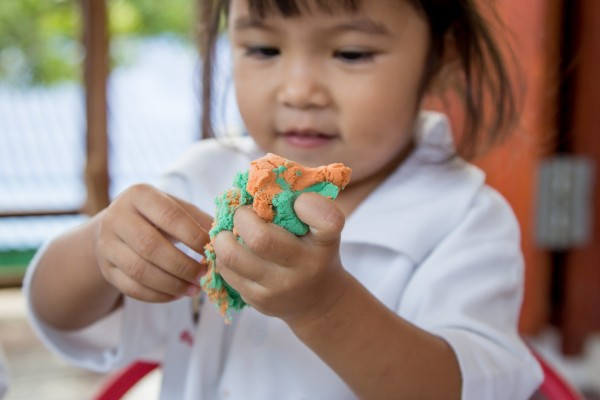
Do children have multiple intelligences?
As parents, we strive to provide our children with the best opportunities for growth and development. Dr. Howard Gardner, a renowned psychologist and educator, introduced the theory of multiple intelligences, challenging traditional views of intelligence as a singular concept. Play acts as a catalyst for fostering each intelligence, laying the foundation for well-rounded and confident individuals.
Howard Gardner’s Theory of Multiple Intelligences

Dr. Howard Gardner’s theory, proposed in the early 1980s, suggests that intelligence isn’t limited to a single, all-encompassing capacity. Instead, he identified eight distinct types of intelligence, each representing a unique way of processing information and skills.
These intelligences are:
Linguistic Intelligence: Relating to language and the ability to effectively use words to communicate.
Logical-Mathematical Intelligence: Focused on logical reasoning, problem-solving, and mathematical thinking.
Musical Intelligence: Centered on an individual’s sensitivity to pitch, rhythm, and musical patterns.
Spatial Intelligence: Involves the ability to visualize and manipulate objects in space, crucial for activities like art and navigation.
Bodily-Kinesthetic Intelligence: Concerned with physical movement and the ability to control one’s body effectively.
Interpersonal Intelligence: Relates to understanding and interacting with others, exhibiting empathy and effective communication skills.
Intrapersonal Intelligence: Refers to self-awareness, introspection, and understanding one’s emotions and motivations.
Naturalistic Intelligence: Involves recognizing and categorizing elements in the natural environment, such as flora and fauna.
Play and Its Impact on Multiple Intelligences

Play is a fundamental aspect of childhood, and it has a profound impact on a child’s cognitive, emotional, and social development.
Howard Gardner’s theory of multiple intelligences aligns perfectly with the idea that play can effectively nurture each intelligence in children:
Linguistic Intelligence: Storytelling, imaginative play, and engaging in role-play activities enable children to expand their vocabulary, improve language fluency, and develop effective communication skills.
Logical-Mathematical Intelligence: Games that involve strategy, puzzles, and problem-solving provide children with opportunities to sharpen their analytical and critical thinking abilities.
Musical Intelligence: Musical play, exposure to various genres of music, and playing musical instruments contribute to enhancing a child’s sensitivity to rhythm, pitch, and sound patterns.
Spatial Intelligence: Engaging in artistic activities, building with blocks or construction sets, and playing games that require spatial reasoning all aid in developing spatial intelligence.
Bodily-Kinesthetic Intelligence: Physical play, sports, dance, and other movement-based activities allow children to refine their motor skills and body coordination.
Interpersonal Intelligence: Collaborative games, team sports, and interactive group play foster empathy, communication, and the ability to understand and connect with others emotionally.
Intrapersonal Intelligence: Through solitary play, children can engage in self-reflection, exploring their feelings and thoughts, leading to better self-awareness.
Naturalistic Intelligence: Outdoor play, nature walks, and gardening experiences expose children to the natural world, fostering an appreciation for nature and understanding of its complexities.
Play serves as a powerful tool in nurturing all of these intelligences. Through play, children can explore various activities that align with their strengths and interests, leading to a deeper understanding of themselves and the world around them. As parents, we can encourage and facilitate play experiences that encompass different intelligences, ultimately helping our children reach their full potential as well-rounded individuals.
Ready to explore the magic of Balanced Play?
Hop on over to “The Who of Balanced Play” to uncover how your child’s individual personality and strengths shine through different types of play. It’s like discovering secret superpowers that each child possesses, just waiting to be explored!
Next stop, “The What of Balanced Play“! Here, we unveil a treasure trove of activities that ignite creativity, language skills, and more. It’s like a playground of ideas that tickle young minds and keep them learning while having an absolute blast.
But that’s not all – let’s venture to “The Where of Balanced Play“! Discover how different environments spark social skills and teamwork, just like Gardner’s idea of playing and learning together.


